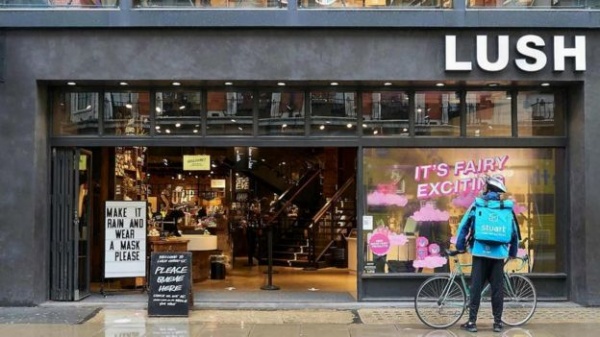Really smart cities help their stores to go Dark
The digital dark side or retailing is more smart than dark.
Two weeks ago, I commented a very sensible proposal to protect brick and mortar local stores, based on building small local “Amazons”, rather than actually boycotting Amazon.
In addition to that strategy, or maybe as complement of it, here is a very interesting development coming out in (at least) the UK and the USA: shops going over to the “dark” side.
A little big, difficult problem:

<u><em><strong>CAPTION:</strong>
<a href="http://www.rachaelcoxartist.com" target="_blank">Image source: Rachael Cox Artist, via BBC</a>
</em></u>
- what do you do, as a store owner, when your store is full of perfectly good products, but closed for lockdown?
- You sell online, of course (see here, again. Unless demand is so high that you cannot keep up with it, as it happened in Italy last spring, when orders had delivery time of 4 to 6 weeks?
F. Jamieson and S. Mastrodonato, managers of a Lush store in downtown London found themselves in this exact situation.
“Desperate not to waste three floors worth of the cosmetics, considered buying a van…then remembered that neither of them drives”.
The goods could not even return to the warehouse they came from, for the simple reason that it too was “too busy with the backlog of online requests”.
So why not turn the shop into a local distribution centre?
Jamieson and Mastrodonato set up a bike and on-foot delivery service called Lush Local, and reorganized their store to work as a warehouse for it, with local staff taking order, and, if I understand correctly, also packing them.
Pop-up, brick and mortar e-commerce centers
What matters here is that changes like this are here to stay, even after the pandemic. What Jamieson and Mastrodonato did was to transform their store into a “dark store”, or fulfilment center: “a retail outlets that caters exclusively for online shopping”.
Says the BBC that facilities that can do the same job are currently the most sought-after type of commercial property in the UK.
On one hand, this is bad, because many of those places may end up strenghtening big players like Amazon, the only ones who can surely “pay all of their rent and they pay it on time”. In London, and everywhere else, of course.
Another reason why that could be the end result is that “Overburdened courier services like the US Postal Service prioritise pick-ups from huge warehouses”, not lilliputian, isolated “High Street Stores”.
THIS is what really smart cities should be about
Physical retail is in transformation, say the experts interviewed by BBC, and _“dark stores are emerging. It’s a global trend accelerated by Covid-19”.
OK. But, let me repeat it, this is where really Smart Cities should be about. If dark stores are a thing, if every city now as “a lot of shops on expensive real estate without a role”, a smart city administration should take the lead, calling and coordinating organizing local entrepreneurs, real estate companies, local delivery businesses and so on, to facilitate as much as possible, whenever it makes sense, the total or partial conversion of a store to the “dark side”.
Less fablabs and startup incubators, more community owned warehouses, with local staff with decent contracts, bike-based, properly slow delivery…
It may be less glamorous, but it could be much, much smarter.
Who writes this, why, and how to help
I am Marco Fioretti, tech writer and aspiring polymath doing human-digital research and popularization.
I do it because YOUR civil rights and the quality of YOUR life depend every year more on how software is used AROUND you.
To this end, I have already shared more than a million words on this blog, without any paywall or user tracking, and am sharing the next million through a newsletter, also without any paywall.
The more direct support I get, the more I can continue to inform for free parents, teachers, decision makers, and everybody else who should know more stuff like this. You can support me with paid subscriptions to my newsletter, donations via PayPal (mfioretti@nexaima.net) or LiberaPay, or in any of the other ways listed here.THANKS for your support!